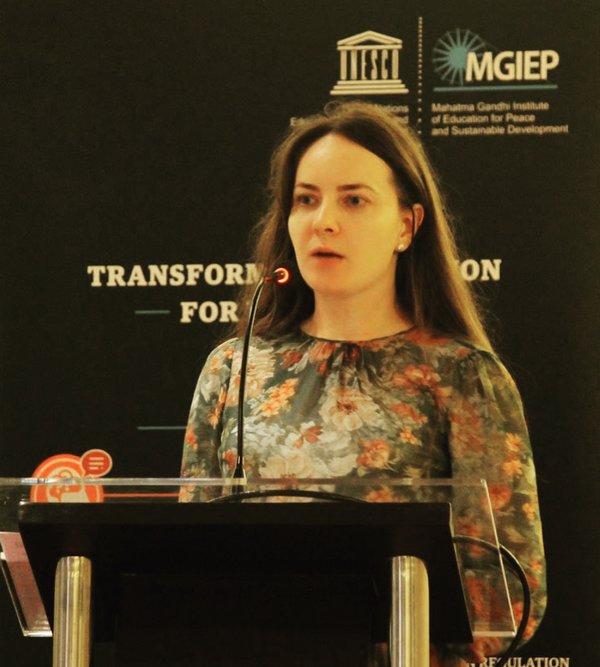Global-Local (Dis)Connections in Education Partnerships

Image Source: “Scenes from the #CSW62 side event “Delivering as One: Achieving the Sustainable Development Goals with and for rural women and girls”” by UN Women Gallery is licensed under CC BY-NC-ND 2.0.
“Public-private partnerships”, “low fee private schools”, “North-South” and “South-South” collaborations, “family and community engagement”, “best practices”, and “policy transfer” have now become buzzwords in education and development.
As a community, we hope that these approaches will help us establish equitable and inclusive education systems for all students (thus meeting the goals and targets of Sustainable Development Goal 4 and the Education for All agenda). For some, the hope is that they will help increase “national competitiveness” and “human capital”, two other buzz words in use.
Let’s have a look at a few examples:
Low fee private schools are thought to improve access to quality education and thus ensure better academic outcomes for more disadvantaged students.
Family and community engagement is believed to help create a more inclusive learning environment, especially for more marginalised children and youth.
Partnerships – whether in research, policy, or praxis – in particular are now considered the silver bullet against the ‘learning poverty’, exclusion, colonial legacies, and power imbalance. After all, collaborations between and among diverse education actors and stakeholders can draw on resources, capacities, social and cultural capital, and the support of a wide range of people who are determined to work together for a shared goal.
In research, partnerships are expected to address the power imbalance and, ideally, eradicate unsustainable and ineffective hierarchies; and help us learn from each other.
Similarly, adopting policies and “best practices” that have been successful elsewhere has become a norm. If it works in Kenya, of course, it will work in Indonesia, will it not? And if it doesn’t, it won’t hurt to try?
In our sub-theme – “Global-Local (Dis)Connections in Education Partnerships” – we want to re-assess, critique, and disrupt these and other assumptions circulating in our community. We want to learn and re-learn what works and what doesn’t, and most importantly, how, why and with what effects.
For those working on policy diffusion, adoption, and adaptation, our questions would be how global agendas, priorities, and influences – such as the 2030 Agenda for Sustainable Development, Education for All, and many others – play out in national and local contexts. How do local cultures, interests, needs, and agendas incorporated – if they are, at all?
For those working on partnerships and collaborations between and among diverse actors at different levels, we are interested in the cultural politics embedded within such partnerships between actors – whether they are between global and local actors, between global South and global North, or any other combination of levels and actors. Here, we are also interested in exploring and discussing such questions as: What difficulties do partnerships face, why, and how to overcome them? Is there any resistance to partnerships at different levels of the system, and why? We are also keen to see what factors can facilitate effective partnerships.
The sub-theme also invites critical contestation of the conceptualisation of ‘global’ to identify how the power dynamics and the politics of the Centres (most often, the high-income countries) are articulated and performed in the process of designing and managing partnerships, policies and priorities. We do not necessarily consider that global processes happen within politically neutral spaces. We are thus interested to explore how and why local, national, and regional actors accommodate, contextualise, (re)conceptualise, or actively oppose global discourses and policies? Why does ‘policy transplant’ fail within certain contexts? But also, how do local historical legacies, power dynamics, and unjust structures in place resist frameworks that focus on human and minority rights and social justice?
Our objective is not to reject these practices – from our own work in various geographical and cultural contexts, especially with some of the most marginalised groups, we have observed that global agendas, priorities, and values, as well as partnerships and collaborations matter.
Our objective is to open space for and invite conference delegates to ask difficult questions, to learn from each other, and to question our own practices and assumptions.

